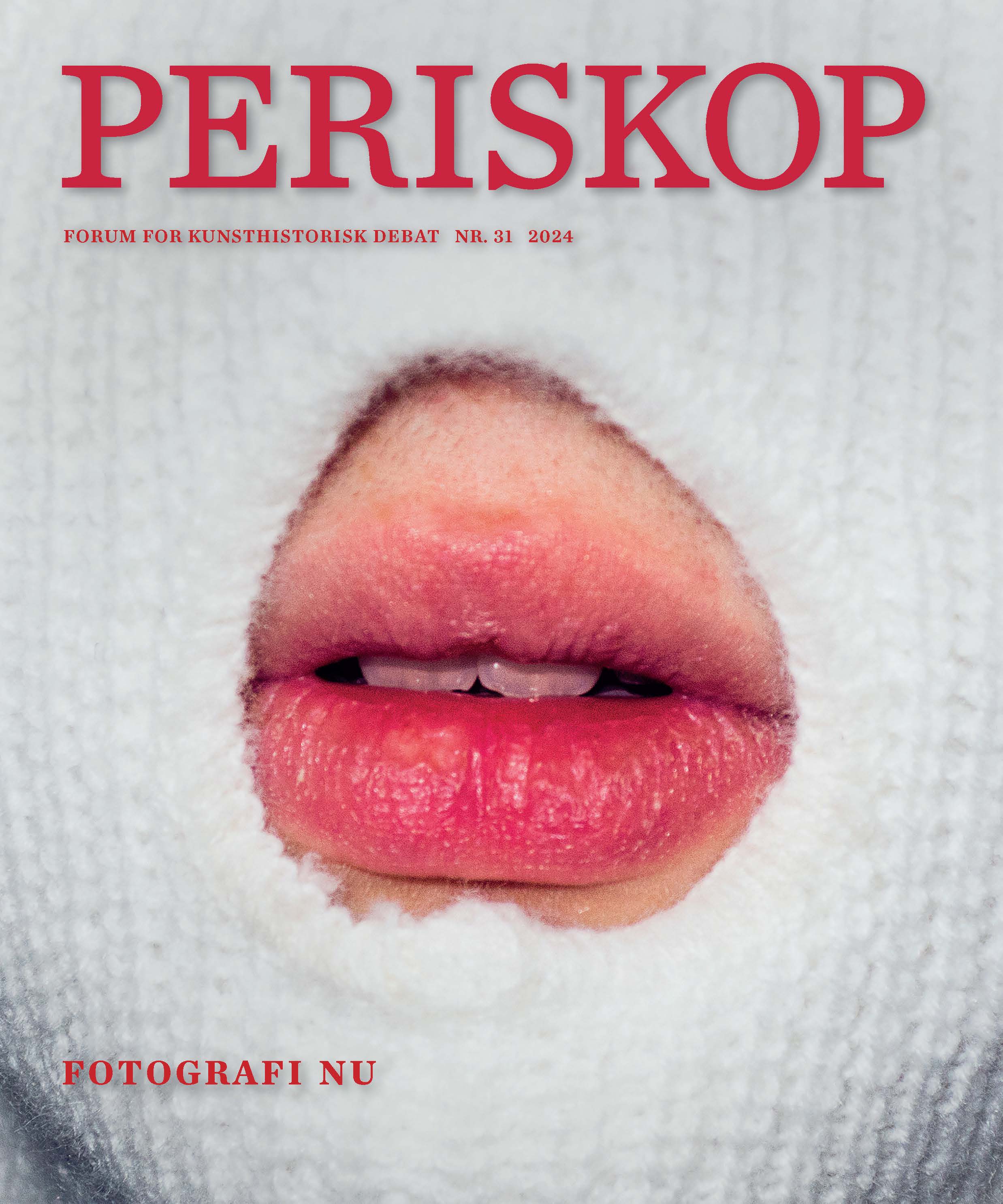Det gengældte blik
Fotografiske selviscenesættelser som kunstnerisk strategi til forhandling af køn, identitet og seksualitet
DOI:
https://doi.org/10.7146/periskop.v2024i31.146556Resumé
This article asks how self-staging and self-exposure are employed as an artistic strategy to negotiate the boundaries between (self-)objectification and liberation. Focusing on the images of Danish artists Maja Malou Lyse and Kirsten Justesen as a dialogue between feminists of two different generations, the article inquires into the function of the staged image as performance across the contexts and infrastructures within which it is actual- ized. The artists’ practices in each their way inspire to reconsider and negotiate the relationship and exchange between the onlooker and looked-at, the posing object and producing subject, as it is expressed in the image. Drawing upon feminist theory, post- pornography, and contemporary image theory, the aim of this article is to investigate how these practices inspire to discuss the boundaries between a critical observing subject and an invested, embodied, and desiring one.
Downloads
Publiceret
Citation/Eksport
Nummer
Sektion
Licens
Copyright (c) 2024 Anne Kølbæk Iversen

Dette værk er under følgende licens Creative Commons Navngivelse (by).
Forfattere, der publicerer deres værker via dette tidsskrift, accepterer følgende vilkår:
- Forfattere bevarer deres ophavsret og giver tidsskriftet ret til første publicering, samtidigt med at værket 12 måneder efter publiceringen er omfattet af en Creative Commons Attribution-licens, der giver andre ret til at dele værket med en anerkendelse af værkets forfatter og første publicering i nærværende tidsskrift.
- Forfattere kan indgå flere separate kontraktlige aftaler om ikke-eksklusiv distribution af tidsskriftets publicerede version af værket (f.eks. sende det til et institutionslager eller udgive det i en bog), med en anerkendelse af værkets første publicering i nærværende tidsskrift.
- Forfattere har ret til og opfordres til at publicere deres værker online (f.eks. i institutionslagre eller på deres websted) forud for og under manuskriptprocessen, da dette kan føre til produktive udvekslinger, samt tidligere og større citater fra publicerede værker (se The Effect of Open Access).


